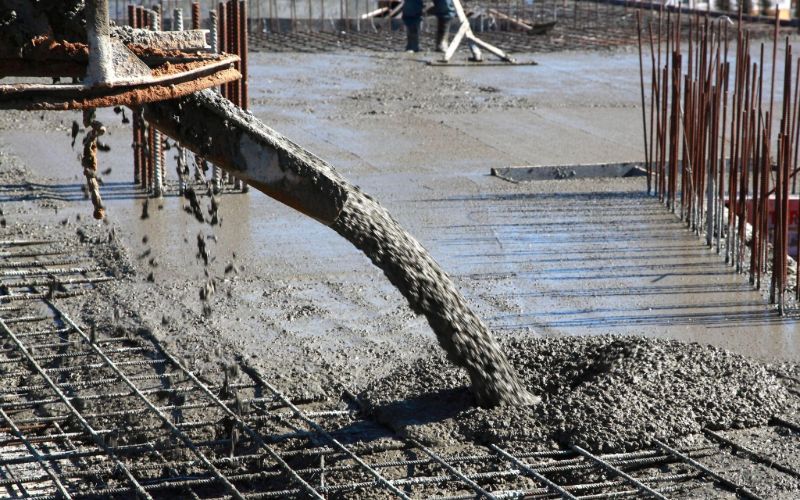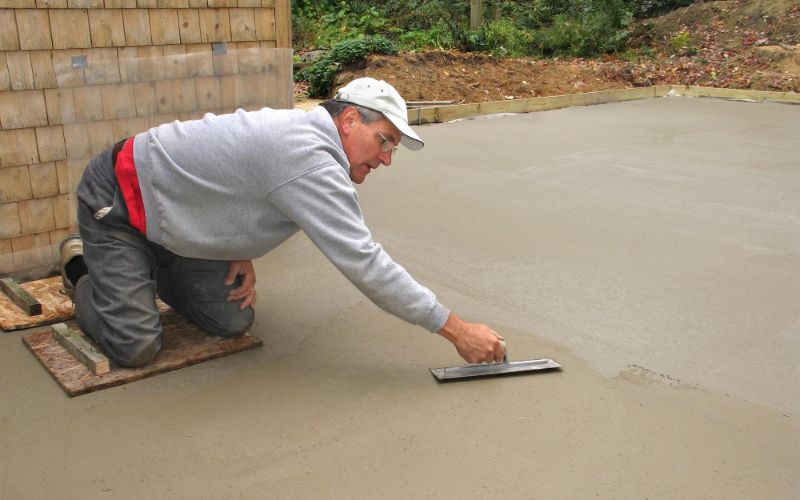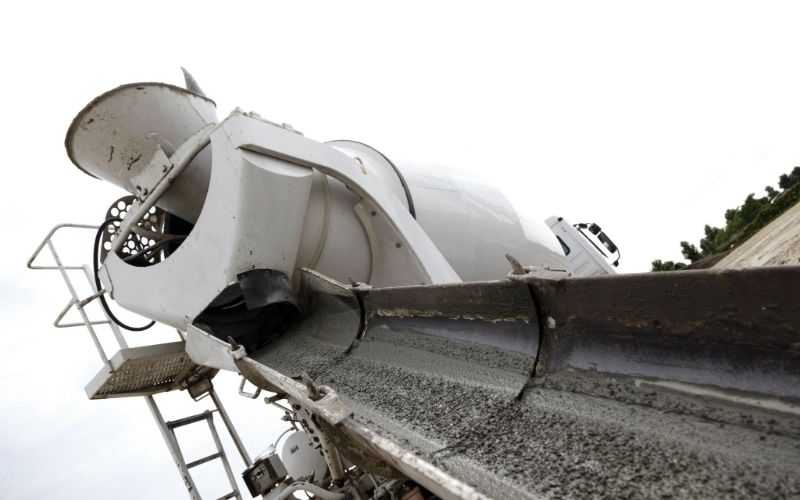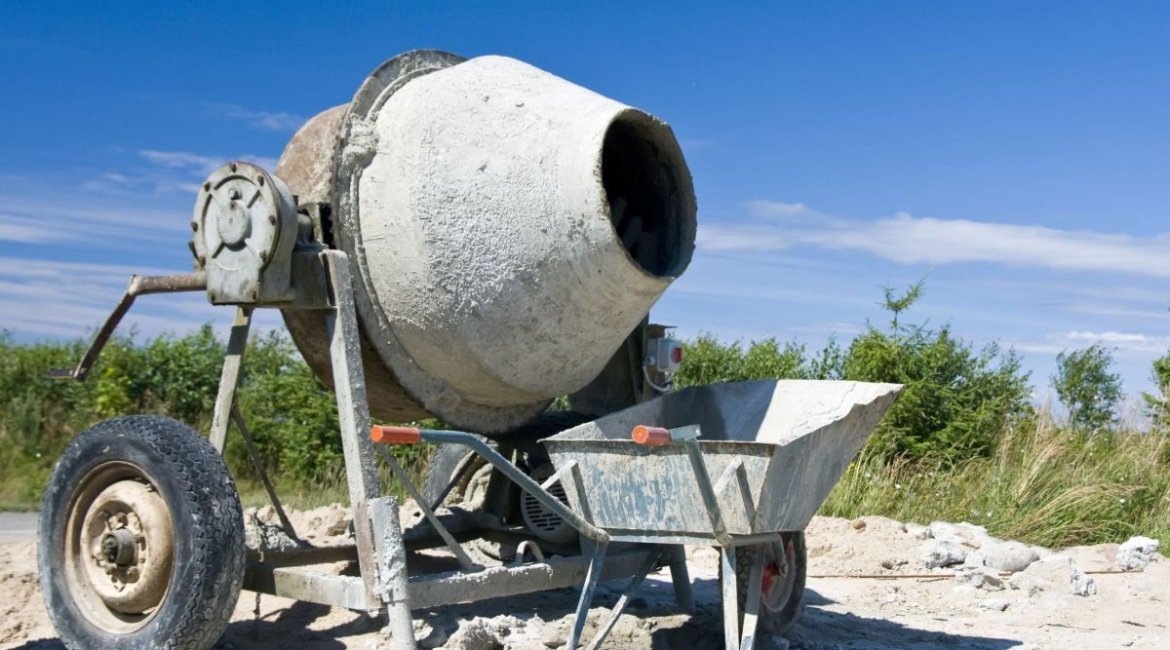No matter the type of construction project you’re working on, concrete and a concrete mixer should be at the top of your checklist of essential tools and equipment. Concrete is the perfect construction material, providing the versatility, durability and affordability that construction workers need to get the job done.
As a leading manufacturer and importing company for robust power equipment, we understand the importance of having proper construction tools at BS Power. In this quick read, we’ll be exploring the many benefits of using concrete in construction and why it is essential to the construction process.
Concrete Mixer: What Is Concrete & How Is It Made?
Before we uncover the advantages of using concrete in construction, it’s important to know what concrete is and how exactly it’s made. As a composite material, concrete is made up of several constituent elements, including water and aggregate. When it comes to construction, aggregate is essential. Aggregate is made up of different natural materials, namely gravel, crushed stone and sand. This aggregate mixture is then bound together with fluid cement, causing it to cure and turn into solid concrete.
To properly prepare concrete, you’ll need to follow these specific steps:
- Making Portland Cement: Before mixing and curing your concrete, your Portland cement mix needs to be created. This is done by grinding calcareous material into a fine powder before firing it, after which it is crushed further. If you aren’t able to create your own cement powder, you can purchase your own mix.
- Portioning Out Materials: If you’re creating concrete from scratch, proportioning your different components accordingly is key to creating a strong, durable mixture. Make sure you follow the correct ratio of ingredients for your concrete mixture, as the wrong proportions may affect the curing process. If you’re using a cement mixer, be sure to proportion all your materials out as instructed before switching the cement mixer on.
- Mixing With A Concrete Mixer: Once you’ve prepared the correct ratio of materials for your mixture, you can start combining everything in a mixer. While it is possible to mix these components together by hand, a cement mixer is highly adept at evenly combining all the materials to form a smooth consistency. Additionally, once hydration begins, the concrete mixture needs to be regularly mixed to avoid hardening. Thankfully, a mixer should do the trick and keep your mixture smooth.
- Place Your Mixture: As hydrated concrete can harden quickly, time is of the essence, which is why you need to place your concrete mixture once it’s fully hydrated. Place your concrete mixture in its designated area using chutes, buckets or hoppers. With a portable concrete mixer, you should be able to pour directly from the drum.
- Curing The Concrete: The final step of the concrete mixing process is to let your mixture set and harden once it’s been poured out of the mixer. If you want your concrete to turn out especially durable, it’s recommended that you keep it hydrated while curing. This can be done by spraying the concrete with water or leaving a moistened fabric over it.
The Many Advantages Of Concrete In Construction
Now that you’ve been clued in on how to make your own concrete using a concrete mixer, let’s unpack the different reasons why concrete is so beneficial in construction. Concrete makes construction work more functional without compromising on quality, which is why you should always ensure that you have concrete for whatever construction project you’re working on. If you’re still not convinced, here’s a breakdown of some of the key advantages that come with using concrete in construction:
Little To No Maintenance
One of the main reasons why so many buildings and infrastructures are made with concrete is that it requires no maintenance. Due to the sturdy composition of concrete, it can withstand all the elements without incurring any damage. Strength and durability are two of the main properties construction workers look for when choosing their materials. Whether it be exposed to extreme levels of heat or heavy rains, concrete is protected against all forms of weathering without the need for coating or painting. This means it can be used for industrial, commercial or residential structures as it can stand the test of time.

Easily Mouldable
Finding the right material for your construction project can be tricky, especially if you have a range of different infrastructures, shapes and sizes that need to be constructed. What’s great about concrete is that it can be moulded effortlessly while in its liquid state into virtually any structure. Whether it be for a sidewalk or a standing structure, concrete can be formed into a diverse range of complex configurations and shapes once poured into a mould.
Additionally, concrete comes in a variety of textures, allowing you to opt for smoother finishes or more textured surfaces without needing to buy different construction materials.
Cost Effective
If you’ve ever worked on a construction project, you’ll know that the materials and resources required to complete it do not come cheap. Whether you’re looking to save funds on an independent project or keep overall costs down as a contractor, concrete is the way to go. Unlike other building materials, the production cost of concrete is relatively low and is accessible anywhere in the world. Its raw materials, such as aggregates and water, can be sourced from most markets, making it easy to get your hands on affordable concrete.
Moreover, the durability of concrete helps to bring down insurance and maintenance costs, allowing construction workers to spend less on their materials without compromising on quality.

Hardens Easily
Certain construction materials may require specific conditions to harden and cure, such as steel or polymer. Concrete, however, does not need to be set at certain temperatures in order to harden. In fact, concrete is a naturally low-bonded organic material, so you won’t need to wait for specific weather conditions for your mixture to cure. This way, you don’t have to delay processes during your construction project or incur additional expenses, allowing you to complete your construction more efficiently.
Water Resistance
Bridges, roads or any outside structures exposed to water are typically at risk of weathering and erosion. Concrete, however, has a far higher resistance to water than materials like steel and wood. Unlike other materials, plain water causes no deterioration to concrete, making it the perfect material for building structures like dams, canals and bridges. It should be noted, however, that water tainted with chemicals like chlorides and sulphates can erode concrete structures, which is why it’s better to keep the nearby water sources free of these toxins.
Does Not Reflect Light
Depending on the type of construction project you’re working on, you may want to consider the reflectability of certain materials for added safety. Runways and roads, for example, should typically be constructed without reflective materials like asphalt, as they reflect light, which can cause disruptions for drivers and pilots during their commute. Thankfully, concrete is composed of natural hues and is not reflective, making it a safer material for roads and runways.
Environmentally Friendly
One of the biggest concerns that needs to be addressed in construction is raw material waste and the overall carbon footprint. Thankfully, concrete is a sustainable material, meaning that it reduces overall carbon emissions and is easily recyclable. Unlike other materials, concrete does not emit toxic gases or volatile organic compounds that could negatively impact the environment. This also means that you won’t have to worry about spoiling air quality with mildew, dust or pollen.
Above all else, concrete is especially good for the environment as it is totally recyclable. Whether you’re demolishing a concrete structure or have leftover mixture, you can simply crush the extra concrete back into aggregate to be used for reinforcement for other buildings.
Temperature Resistance
If you’re looking for a reliable material that can withstand both freezing and sweltering temperatures, look no further than concrete. While other materials may lose their strength and durability over time once exposed to extreme temperatures, concrete can withstand high and low temperatures as it’s made with calcium silicate hydrate. If you need to fireproof certain materials, like steel, in a building structure, concrete is a great choice as it stores heat without losing its strength. Due to its level of fire resistance, using concrete in construction can help with added safety in the case of a fire.
Versatile Application Techniques
What makes concrete such a great construction material is that it can be applied to reinforce or build structures in a variety of different ways. No matter the type of reinforcement or construction work, concrete can be used in several areas on a construction site. Not only can concrete be applied by hand or poured, but it can also be grouted, sprayed or pumped on a construction site. This makes concrete especially versatile for a host of different types of construction, allowing workers to build and reinforce structures with just one material.
Can Be Made With Recyclables
If you have any leftover industrial or recycled waste from a previous construction project, these materials can be used in place of aggregate to construct concrete. As waste from construction sites can have a negative impact on the environment, reusing these leftover materials is a great way to conserve the environment without decreasing the quality of the concrete. Common materials used in place of aggregate include glass, ground tyres and fly ash, all of which enhance the properties of concrete. This way, you can promote sustainable construction without weakening the durability of the concrete.

Concrete Mixer: Finish Your Construction Project With Supplies From BS Power
Whether you’re working on an independent project and need to save funds or are looking for a reliable material to reinforce your infrastructure, concrete is the perfect material for all types of construction. From its immense strength and durability to its ability to withstand all weather conditions, concrete truly stands the test of time without weakening or deteriorating. Whether it be its low maintenance costs, recyclability or environmental contributions, the benefits of concrete in construction span far and wide.
If you’d like to supply your construction project with high-quality machinery and tools, BS Power has got you covered. From our concrete mixer line to our plate compactors, we stock only the best in construction and agricultural equipment.
To get your hands on a concrete mixer of your own, simply visit our online store or drop us an email at info@bspower.co.za to find out more about the products we sell.






